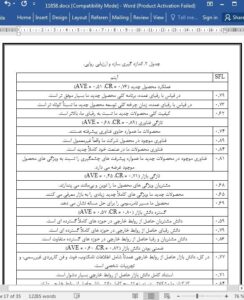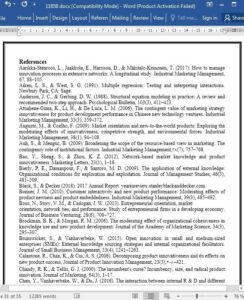Abstract
Although knowledge has been built around how product newness affects product performance in the context of established firms, such an effect in new ventures remains to be explored. Building on the knowledge-based view, the open innovation literature, and observations of the liability of newness, this study examines the differential effects of technological and market newness on product performance and tests how market knowledge breadth and tacitness moderate these effects in distinctive ways. Results obtained using data from new high-tech ventures in China show that market newness has a stronger positive effect on product performance than technological newness. Market knowledge breadth enhances the effect of technological newness on product performance, whereas market knowledge tacitness appears to be a double-edged sword: it weakens the effect of technological newness but enhances the effect of market newness on new product performance. These findings provide novel insights into how distinct dimensions of product newness have differential effects on product performance and a more nuanced view of how market knowledge characteristics function as boundaries in the product newness–performance link in new ventures.
1. Introduction
As product newness is a critical parameter of new product development (NPD) in industrial firms, marketing scholars have paid great attention to its impact on product performance (see Evanschitzky, Eisend, Calantone, & Jiang, 2012 for a recent review). Although product newness has been widely examined in the context of established firms (Calantone, Chan, & Cui, 2006), its role in new ventures is still underexplored. Differing from most established incumbents, new ventures often confront a paradox in NPD1 : whereas they must develop and introduce radically new products to gain a market foothold and succeed in competition with incumbents (Story, Boso, & Cadogan, 2015), they often lack the resources and skills needed to develop and market such products, a characteristic of the liability of newness (Hyytinen, Pajarinen, & Rouvinen, 2015; Stinchcombe, 1965). This paradox signifies the importance of considering product newness and new ventures' resource reservoirs, such as market knowledge, simultaneously in connection with NPD. However, in spite of the importance of product newness to new ventures and the particular resource hurdles embedded in the NPD they undertake, studies on product newness in new ventures are only beginning to emerge (Song, Song, & Di Benedetto, 2011).
5.2. Managerial implications
Our findings offer suggestions to help new venture managers better manage their NPD. First, managers should understand that product newness is not a unidimensional concept, and technological and market newness have differential implications for product performance. Whereas market newness can bring significant gains to new ventures, technological newness is not significantly related to product performance. Therefore, managers should be cautious when they pursue technological advancement. In the transitional context of the Chinese economy, it may be preferable for new ventures to focus on market newness rather than technological newness due to China's underdeveloped formal institutions and inadequate enforcement of intellectual property rights. Because market newness directs new ventures to emphasize emerging or niche markets, their proprietary understandings of a given target market, rather than technological breakthroughs, could help them better defend against potential imitations.










